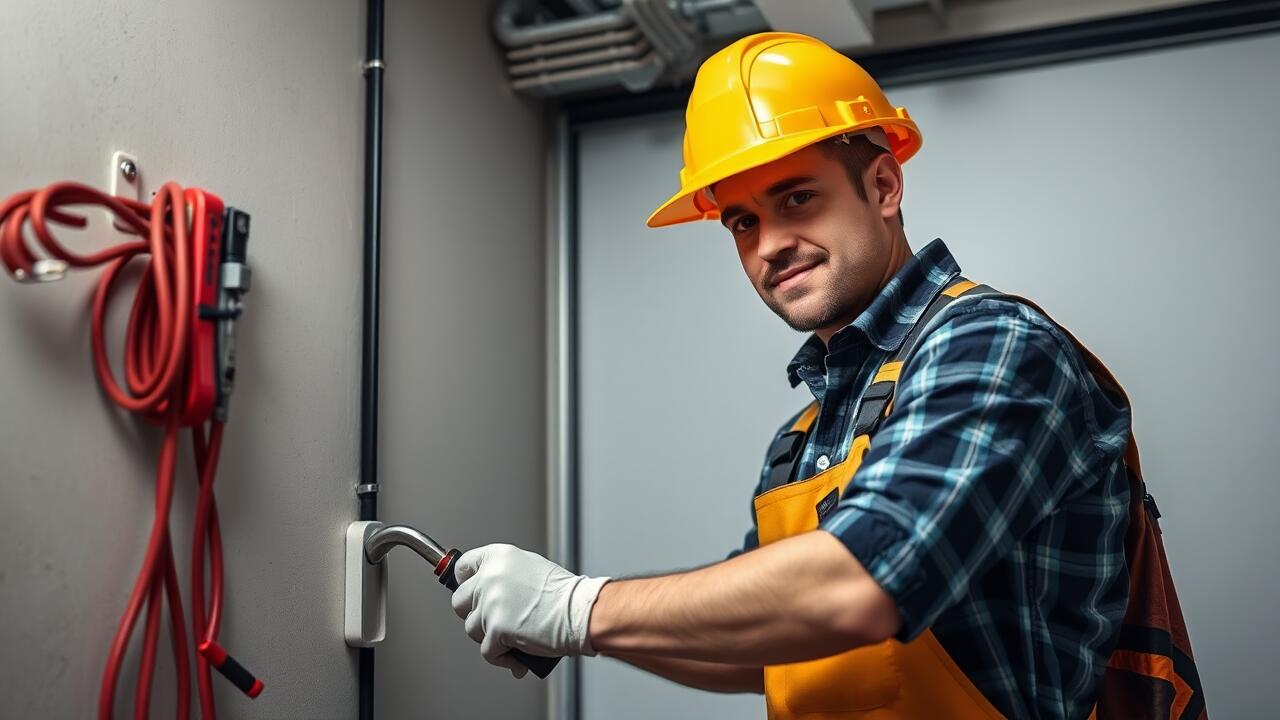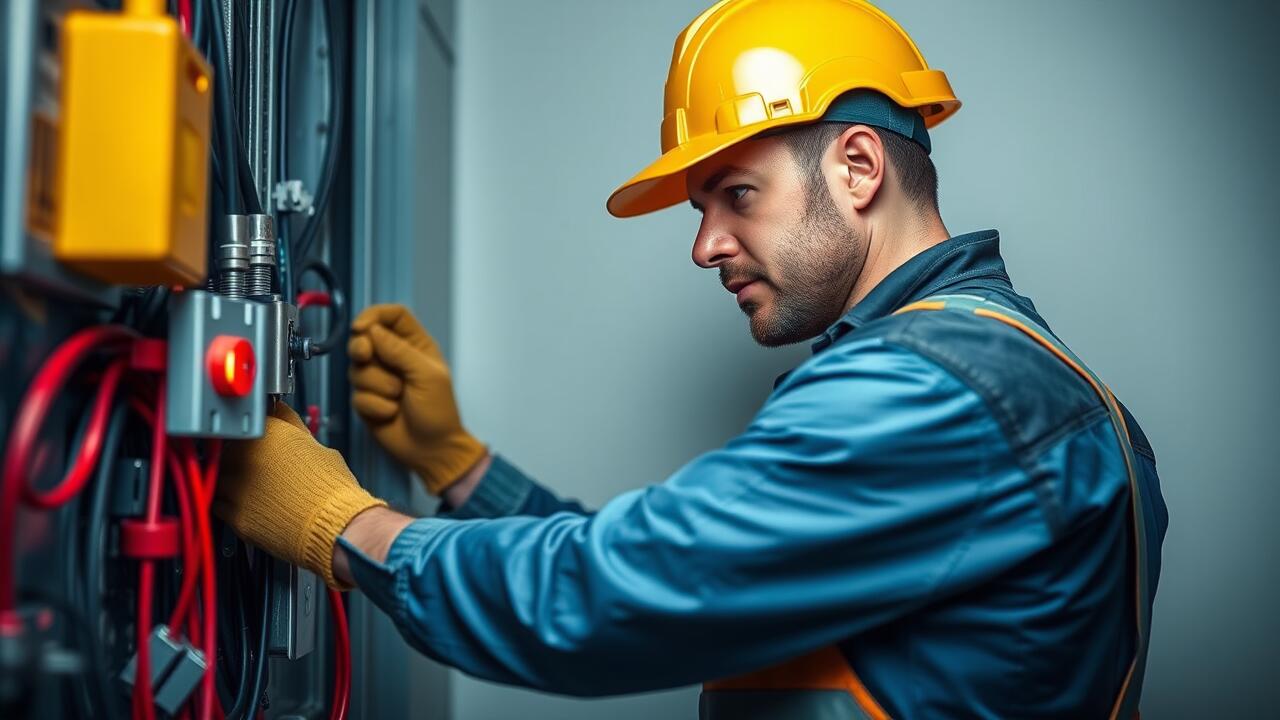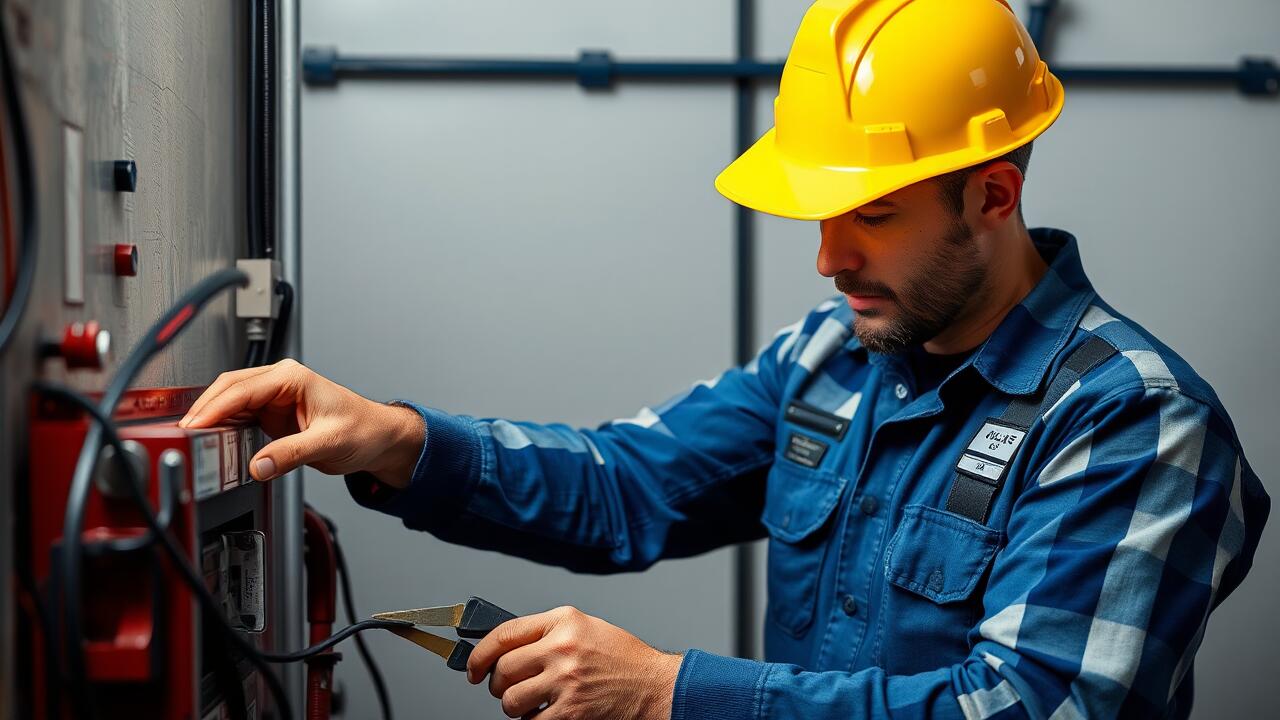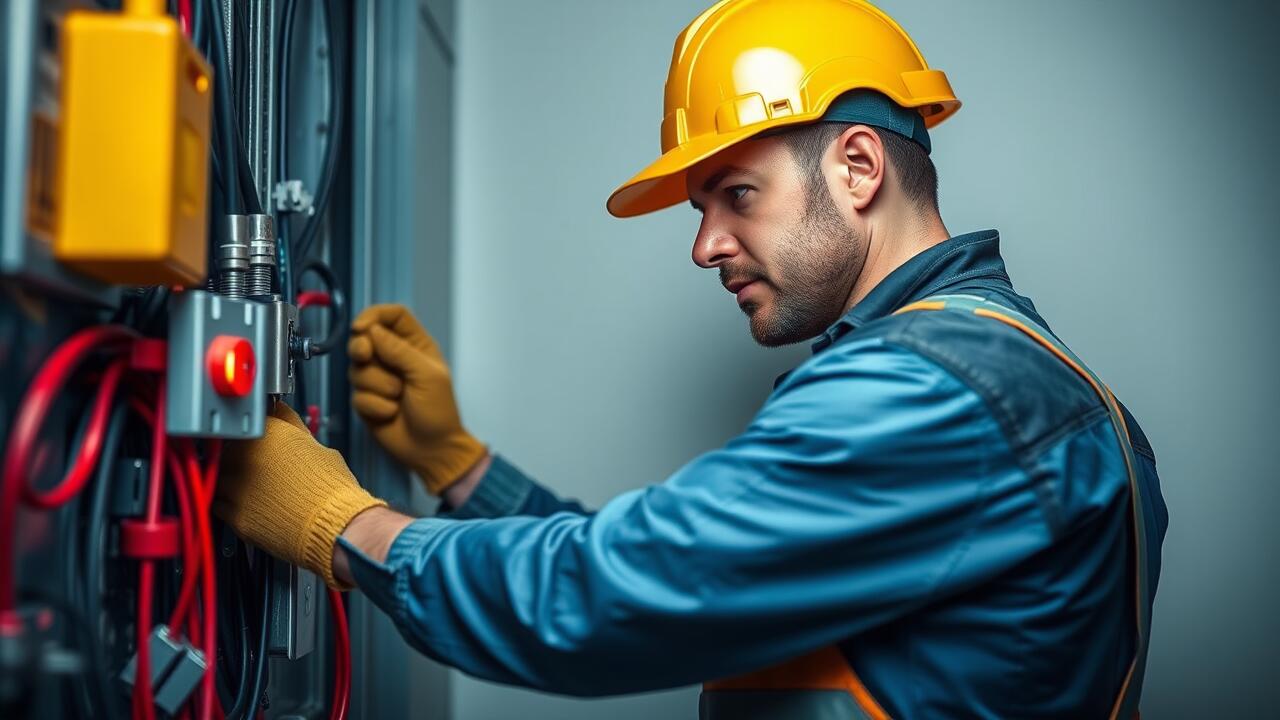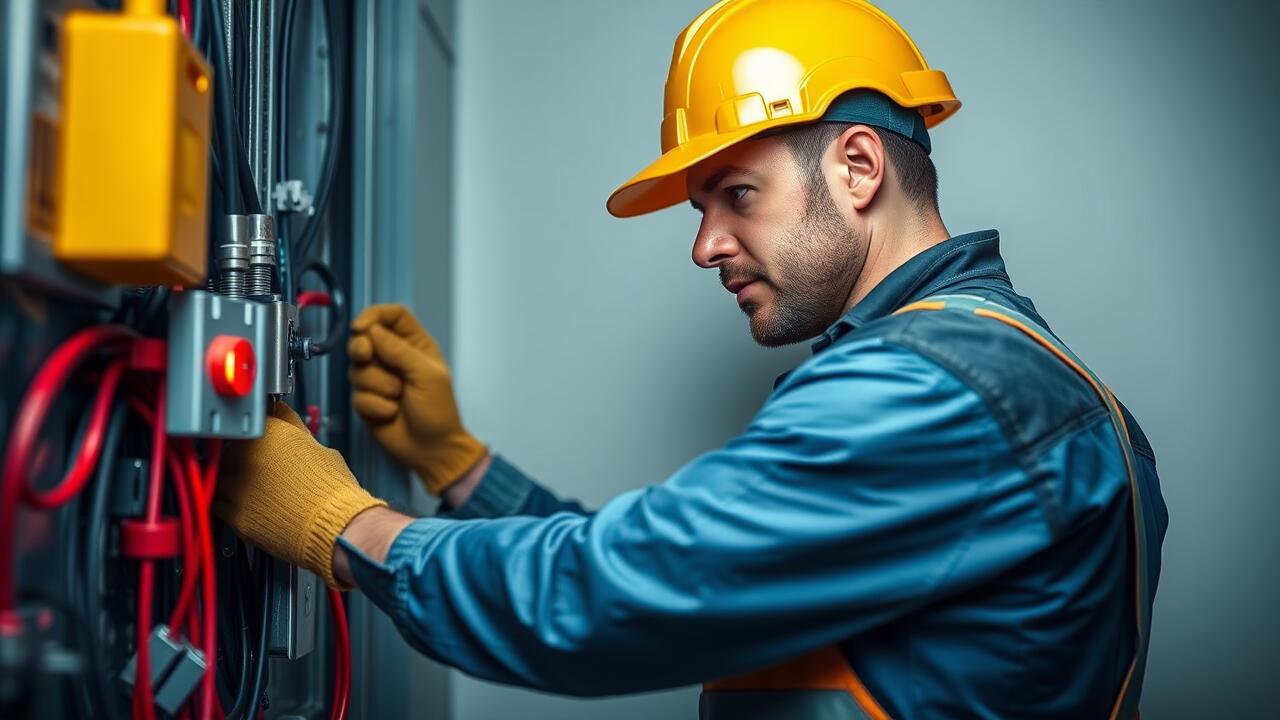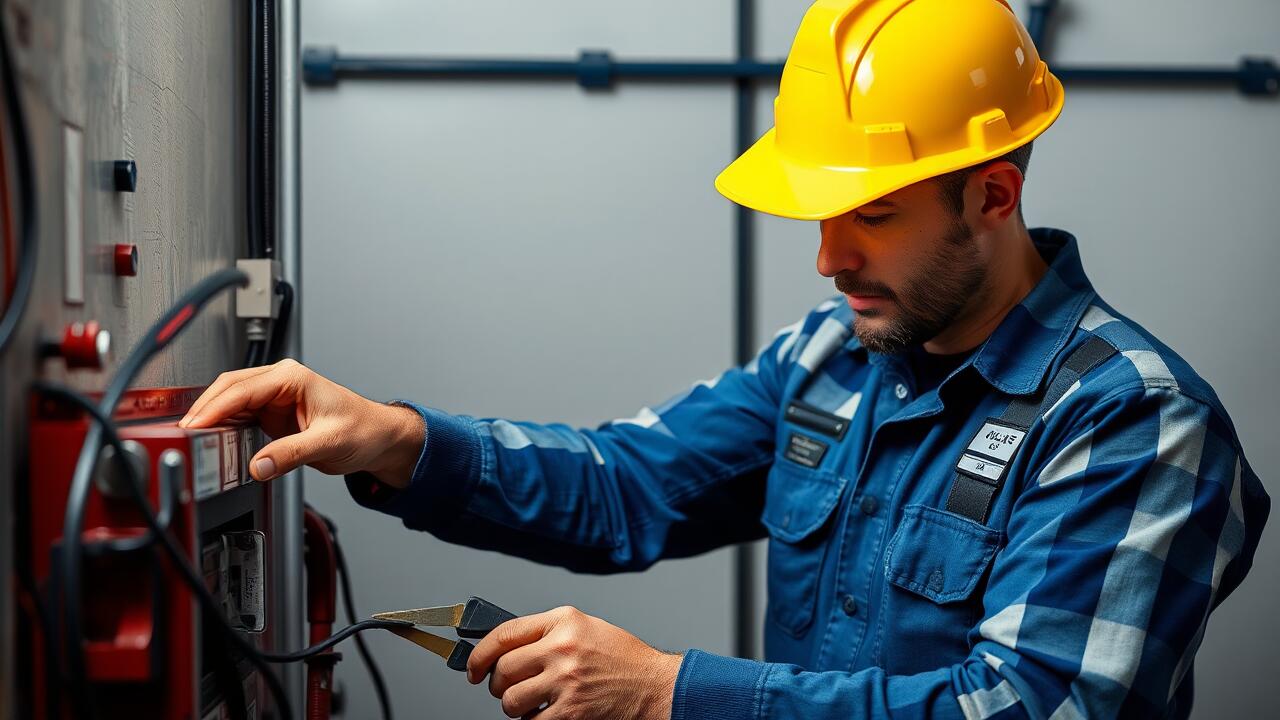
The Role of the Texas Department of Licensing and Regulation
The Texas Department of Licensing and Regulation (TDLR) plays a crucial role in overseeing the licensing process for electricians in the state. TDLR is responsible for enforcing regulations that ensure electrical work meets safety standards. This includes processing applications for licensure, managing examinations, and addressing complaints against licensed professionals. Each Electrician in Kingwood, Houston, must adhere to these regulations to maintain public safety and uphold industry standards.
Additionally, TDLR provides resources and guidance to help electricians navigate the licensing process. They offer information on required qualifications, training programs, and continuing education requirements. For an electrician in Kingwood, Houston, understanding these regulations is essential to operate legally and effectively in the field. TDLR's oversight helps maintain a skilled workforce and protects consumers from potentially hazardous electrical work.
Authority and Responsibilities
The Texas Department of Licensing and Regulation (TDLR) is responsible for overseeing the licensing of electricians in the state. This regulatory body ensures that all electricians meet the necessary standards for safety, competence, and professionalism. They establish requirements for education, exams, and work experience that must be fulfilled to obtain a license. This oversight helps maintain the integrity of the electrical profession, ensuring that electricians are well-trained and knowledgeable about state codes and regulations.
In addition to issuing licenses, the TDLR monitors compliance with state laws and regulations governing electrical work. Electricians in Kingwood, Houston, and across Texas are subject to inspections and audits to verify they adhere to the required safety protocols. The department also addresses complaints and disciplinary actions related to unlicensed practices, reinforcing the need for licensed professionals in the field. This framework promotes public safety and helps protect individuals from the risks associated with unqualified electrical work.
Impact of Unlicensed Electrical Work
Unlicensed electrical work poses significant risks both to individuals and the community at large. Without proper training and certification, unlicensed electricians may not adhere to safety standards or building codes. This can lead to dangerous situations such as electrical fires or equipment failures. Homeowners and businesses that hire unlicensed workers are often unaware of the potential hazards associated with improper wiring and installations.
In areas like Clear Lake City and Houston, the impact of unlicensed work can extend beyond immediate safety concerns. The presence of unlicensed electricians can undermine licensed professionals who have invested time and resources into their education and certification. This disparity can create a cycle where unlicensed practices proliferate, leading to a lack of accountability and potentially harming the reputation of legitimate electricians in the region.
Consequences of Practicing Without a License
Practicing as an electrician without a proper license in Texas can lead to significant legal repercussions. The state takes unlicensed work very seriously, as it poses risks not only to the individual but also to public safety. Operating without a license could result in fines, penalties, or even criminal charges, depending on the severity and circumstances of the violation. For those offering electrical services, this risk outweighs any potential short-term gain from dodging licensing requirements.
In areas like Kingwood, Houston, the presence of unlicensed electricians can compromise the quality of work and the safety of installations. Homeowners hiring unlicensed individuals may face unforeseen costs due to faulty electrical work, which can also lead to fire hazards or other dangerous situations. Legitimate electricians ensure adherence to safety standards and codes. Therefore, choosing a licensed professional is essential for reliable service in the community.
License Renewal Requirements for Electricians
In Texas, licensed electricians must adhere to specific renewal requirements to maintain their credentials. These requirements typically include submitting a renewal application along with the appropriate fees. Electricians are also responsible for ensuring that their continuing education hours are completed before the renewal deadline. This helps to keep their skills current and in line with industry standards.
For an electrician in Clear Lake City, Houston, staying updated on changes in regulations and advancements in technology is crucial. Failing to meet these renewal requirements can lead to the expiration of a license, which may result in an inability to work legally. Keeping track of renewal dates and required continuing education ensures that professionals remain compliant and able to provide services within the community.
Continuing Education and Recertification
Continuing education is essential for electricians in Texas to stay updated with the latest codes, safety practices, and technological advancements. This ongoing training helps professionals enhance their skills and ensure that they are adhering to state regulations. As part of the licensing process, electricians are typically required to complete a set number of hours of continuing education before they can renew their licenses. Electricians practicing in specific locales, such as an electrician in Clear Lake City, Houston, should pay particular attention to local ordinances that may impact their training requirements.
Recertification is another vital aspect of maintaining an electrician's license in Texas. Electricians must demonstrate that they have kept their knowledge and skills current to continue practicing legally. This can involve submitting proof of completed continuing education courses within designated timeframes. Electricians in Clear Lake City, Houston, along with those in other regions, need to be aware of these requirements to avoid lapses in their licenses and ensure that they are providing safe and compliant electrical services.
FAQS
Does Texas require electricians to be licensed to perform electrical work?
Yes, Texas requires electricians to be licensed to perform electrical work legally. This is to ensure that all electrical installations meet safety standards and regulations.
What agency oversees the licensing of electricians in Texas?
The Texas Department of Licensing and Regulation (TDLR) is the agency responsible for overseeing the licensing of electricians in Texas.
What are the consequences of practicing electrical work without a license in Texas?
Practicing electrical work without a license in Texas can lead to fines, legal action, and the possibility of being required to redo any unlicensed work, which can be costly and time-consuming.
Are there continuing education requirements for licensed electricians in Texas?
Yes, licensed electricians in Texas must complete continuing education courses to maintain their license and stay updated on the latest electrical codes and practices.
How often do electricians need to renew their licenses in Texas?
Electricians in Texas typically need to renew their licenses every year, but they must also complete the required continuing education before renewing.
